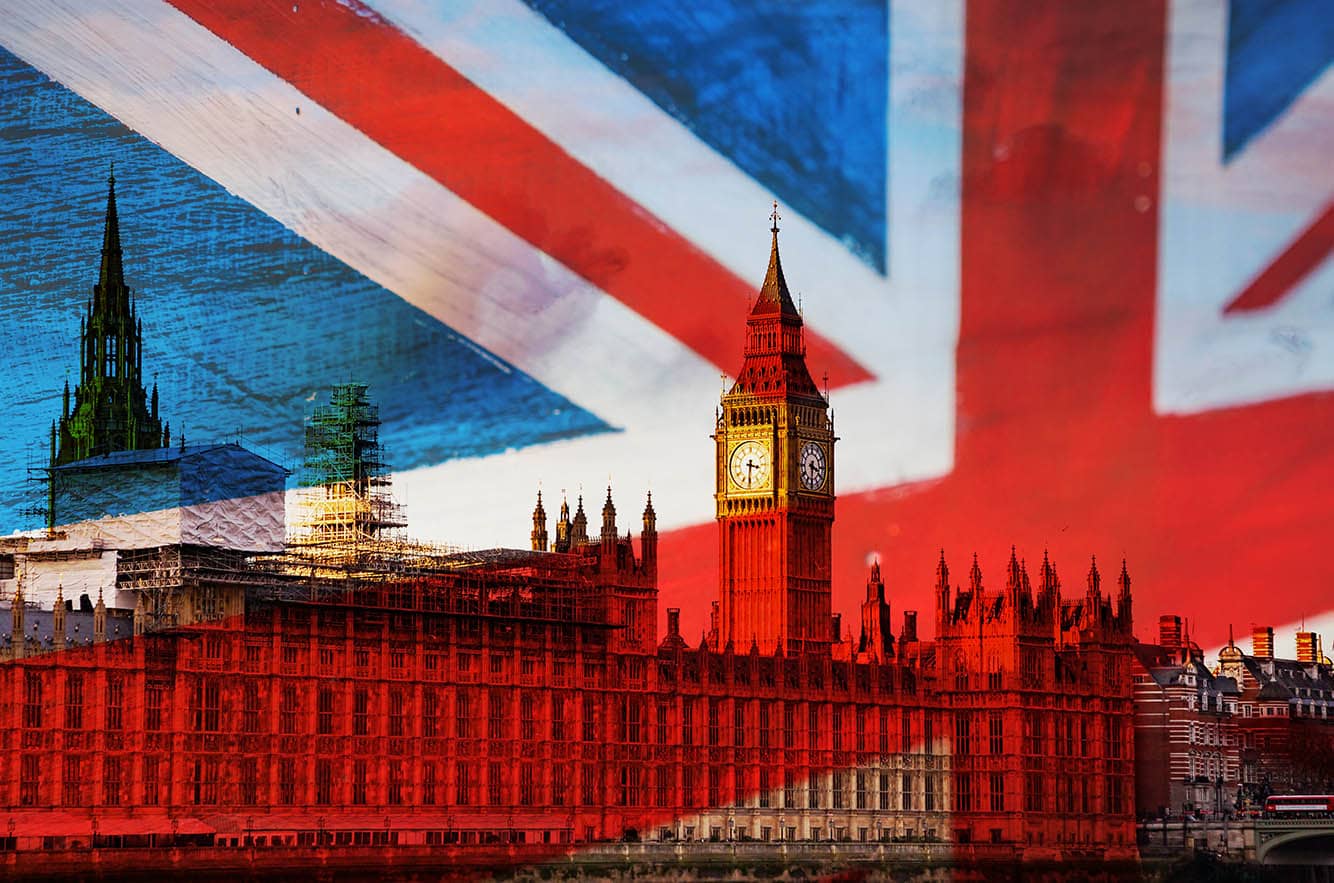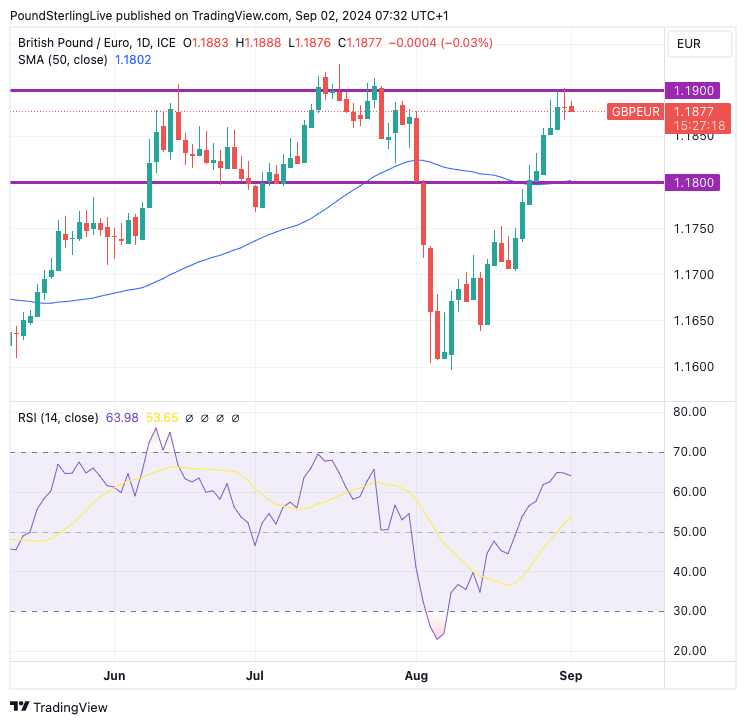
Image © Adobe Images
Pound Sterling has risen for six months in succession against the Euro, but a recent recovery stalled at 1.19 and we could see a pullback evolve in the coming days.
The Pound to Euro exchange rate rallied to just above 1.19 last week but subsequently retreated, confirming this area as an important resistance level. GBP/EUR at 1.19 equates to important support at 0.84 in EUR/GBP, and we could witness some buying interest in the euro around these levels.
"GBP/EUR is a whisker away from the €1.19 handle – a level it’s only been above for 16 days of the past two years," says George Vessey, Senior FX Strategist at Convera.
The RSI is turning over and starting to point lower, confirming momentum is waning and that downside is possible in the coming days.
Despite this, the broader trend and setup remain decidedly constructive, and we think pullbacks should be shallow. Support is now located at 1.18 - the 50-day moving average - and we would expect the exchange rate to remain above here if we are to expect fresh 2024 highs in the coming weeks.
The Euro fell last week following the release of below-consensus German and Spanish inflation releases that raised the odds of back-to-back European Central Bank rate cuts in September and October.
Above: GBP/EUR at daily intervals showing resistance at 1.19 and support at 1.18. Here, we see the 50-day moving average and support from late-June / early-July.
However, market expectations for an October rate cut became more doubtful on Friday after the release of Eurozone-wide CPI data that showed services inflation in the region was rising once more, suggesting the disinflation process risks stalling.
"The further acceleration in HICP services (4.2% YoY, from 4.0% prior) explains why hawkish policymakers will continue to oppose a decisive turn towards monetary easing, with the Bank remaining non-committal about the future path of policy," says Davide Oneglia, an economist at TS Lombard.
Isabel Schnabel, a member of the Executive Board of the ECB, said on Friday that domestically-generated inflation remains high, "largely reflecting persistent price pressures in the services sector, where disinflation has effectively stalled since last November."
Should ECB rate cut bets fade further from here, EUR can consolidate against GBP.
There are no major data releases due from either the Eurozone or UK this week, leaving GBP/EUR dependent on global risk sentiment. The rule of thumb is that the Pound tends to rise when sentiment is positive but falls when markets retreat.
This is an important week for investors as we receive the final U.S. payroll report before the Fed's September interest rate decision. The Fed is all but assured that it will cut rates later this month, but guidance will be important.
For the Fed to commit to further cuts, it will need evidence of a cooling labour market, and this is why Friday's release will be important. A strong recovery in the payroll data could put follow-up rate cuts into question, boosting the Dollar and sinking stocks.
This is why a strong jobs report could weigh on the Pound against the Euro.
"Hurrican Beryl, which swept through Texas on July 8th might have been the main reason the July employment numbers looked so bad. We expect a rebound in this week's data will remove some of the recession fears," says Lars Mouland, an analyst at Nordea Bank.

